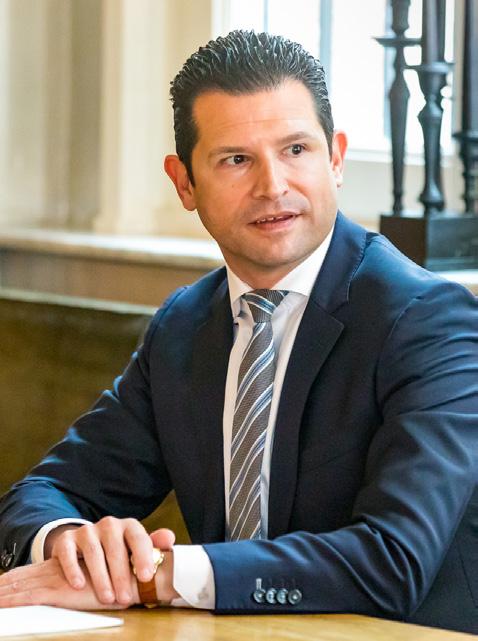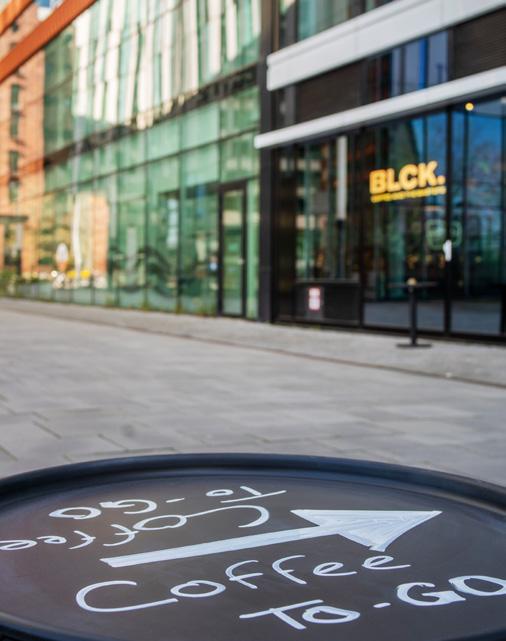
3 minute read
FM Platform
#INTERVIEW with Dirk Beljaarts
DIRK BELJAARTS
Advertisement

The Hello Zuidas Hospitality Sector Consultation meets with local sector members three times a year to discuss how to put Zuidas even more firmly on the map as a central city hotspot. To accomplish the transition from business district to a mixed-use residential and working community, we need to bring our streets to life, also beyond office hours. Hotels and eateries make an important contribution to the vibrancy of Zuidas. On 4 November 2020, all sector members logged on for an online Hello Zuidas Hospitality Sector Consultation with special guest Dirk Beljaarts, CEO of KHN (Koninklijke Horeca Nederland). Representing 19,000 hospitality businesses in the Netherlands, KHN is a leading voice in the public debate around the coronavirus response.
Dirk, you have a special connection with Zuidas. Could you explain? ‘Yes, I was director at Novotel Amsterdam City for almost five years, and so spent a lot of time in Zuidas during that period. I have fond memories of that time aa well as made many connections and friends. I also saw how quality of life in Zuidas improved with the big rise in housing, retail and hospitality. And I still visit Zuidas regularly.’
What is KHN’s mission and role during this pandemic? ‘KHN supports its members by providing information, assistance and support in dealing with challenges of all kinds. That takes the form of services, advice, legal assistance, benefits and lobbying. We advocate for the sector in The Hague where we ensure policymakers have relevant sector data and advise them on what it needs.’
How has the sector responded to the measures? ‘It really varies. On the whole, businesses are very grateful te receive financial assistance, since no one’s to blame for this virus. At the same time, the fact remains that government has hospitality businesses and SMEs to thank for the deep pockets it has now. But aside from gratitude, there’s a lot of anxiety. The government’s financial assistance package simply does not suffice for most places to weather this crisis. Hospitality business owners have already had to draw on almost 4 billion euros from their own reserves and money, just to keep their businesses afloat and their people employed. Now, many are at a breaking point. Politicians and the public seem to think the measures so far have been generous and adequate, but they haven’t. So, it’s crucial that we continue to address the need for additional support and future steps.’
What’s your take on all the measures? ‘The measures to shutter eating and drinking establishments are restrictive. That decision has been a gut punch for operators in this sector. They’ve poured their hearts and souls in their businesses, and all they want is to cater for their guests. It’s strange to say the least – and suspicious – that the administration has still offered no scientific evidence that these businesses in particular are contributing to the spread of the virus. Even after all these months, it has yet to provide proof that the measures are proportionate. There’s still no prospect of reopening, and that’s a major source of concern.’
What do you foresee for this sector? ‘It’s tough to predict. We know part of that demand will instantly bounce back when restrictions are lifted. Domestically, for sure. However, for hotels in big urban areas I suspect recovery will be much slower. It will take time for international business and leisure travel to pick up to old levels, and for conferences and trade fairs it will be years before they’re back to generating pre-crisis numbers and revenues. This is a ‘hidden’ hardship, since ministries are all focused on the acute emergency. That makes sense, but it’s also worrying. At KHN, we’ve long been calling to look ahead to the mid to longer term and come up with some clear policy.’










